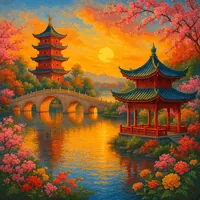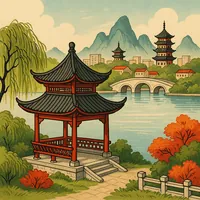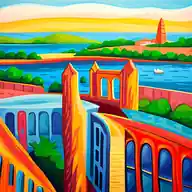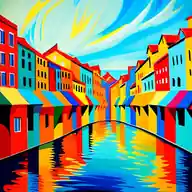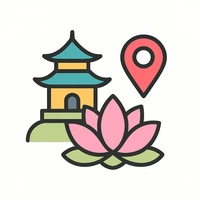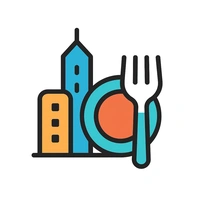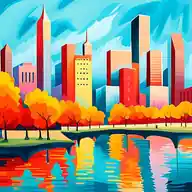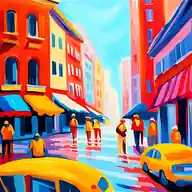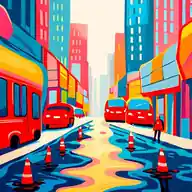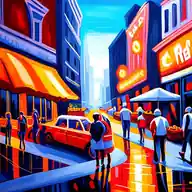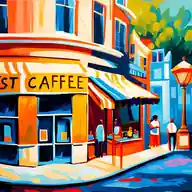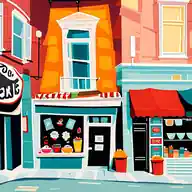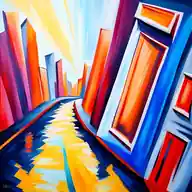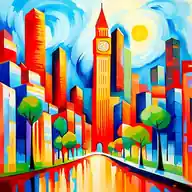Bengbu, known as the "Pearl City" due to its storied pearl fishery history, is distinguished by its unique position as the transportation nexus of eastern China. Nestled along the Huai River, it houses the Huaihe Cultural Museum, celebrating the Huai River's ancient history. Bengbu's culinary scene is another highlight, famed for its signature dish, "Bengbu's Four Treasures," featuring locally sourced river fish and tofu. Its extensive freshwater pearl cultivation further sets it apart, blending traditional craft with natural beauty.

Destinations

Travel Tips & Planning

General City Overview
Notable points about Bengbu
- Pearl City Legacy: Bengbu is famously known as the "Pearl City." Historically, it was a significant center for freshwater pearl cultivation, which continues to influence its cultural identity and economy. The city's connection to pearls provides a unique historical backdrop compared to other urban settings globally.
- Huaihe River Influence: The presence of the Huaihe River not only shapes the city’s geography but also serves as a vital waterway that has historically facilitated trade and transportation. This river differentiates Bengbu from many other Chinese cities and offers beautiful riverfront scenes for outdoor enthusiasts.
- Culinary Delights: For food lovers, Bengbu offers a distinct culinary experience with its Huaiyang cuisine. As a convergence of various regional flavors, the city is noted for dishes like Bengbu fried fish and steamed rice cakes, making it a gastronomic gem.
- Historical Attractions: History buffs can explore a variety of historical sites such as Longzi Lake's ancient relics and the Bengbu Railway Station, which has been a significant part of China's rail history. These sites make Bengbu a unique fusion of ancient and modern Chinese history.
- Learning and Research Hub: With universities like Anhui University of Finance and Economics, Bengbu's academic atmosphere is attractive to both national and international students, making it a bustling educational hub.
- Economic Development Zone: The Bengbu National High-Tech Industrial Development Area positions the city as a hotspot for economic growth and innovation in China. This zone facilitates industry leaders and start-ups, offering ample opportunities for young professionals and entrepreneurs.
- Family-Friendly Environment: For families, Bengbu offers numerous parks and child-friendly areas such as Zhanggongshan Park and Huaihe River Cultural Square, providing excellent venues for leisure and play.
- Cultural Festivals: The annual Dragon Boat Festival on the Huaihe River is a vibrant cultural event that draws tourists from all over, offering a uniquely immersive experience in Chinese traditions and local festivities.
- Architectural Diversity: Bengbu's architectural landscape is a mix of traditional Chinese styles and modern developments. This diversity makes for an exciting urban exploration for visitors and residents alike, who are interested in architectural design and cityscapes.
- Unique Blend of Small Town and City Life: Unlike mega urban centers in China, Bengbu offers a blend of small-town charm with city conveniences, making it a prime location for those seeking a slower-paced lifestyle with access to modern amenities. This quality distinguishes Bengbu from larger, more frenetic Chinese cities.
Summarized User Reviews
The evening walk by Longzihu Lake surprised me—calm water, subtle breeze, and the quiet chatter of locals just felt like home.
The food was okay, but it lacked the punch of other Anhui cities. The street markets felt a bit tame, but still worth a stroll.
Took a train here thinking it’d be a stopover, but the museums and riverfront were more charming than expected. Pleasantly underrated.
The industrial vibe is strong—if you're into smokestacks and warehouses, you'll feel the history. Otherwise, it's a bit gray in spots.
I came for the freshwater pearls, stayed for the people. Bengbu folks have this unhurried kindness that’s rare these days.
Interactive Word Cloud for Bengbu


